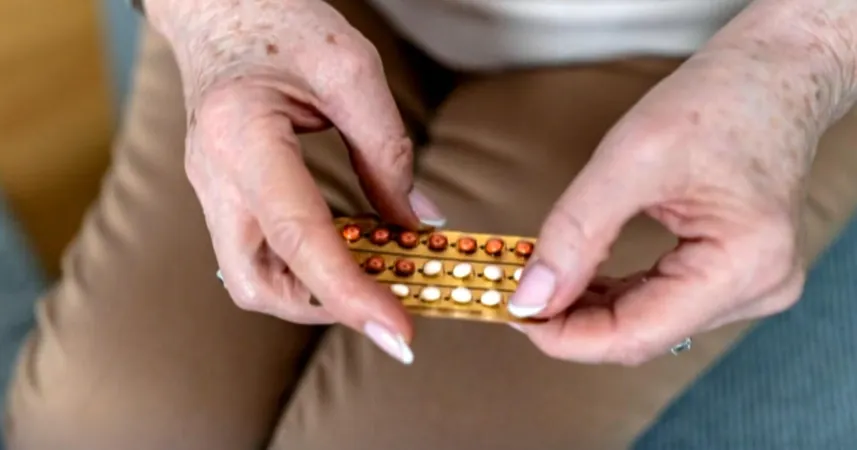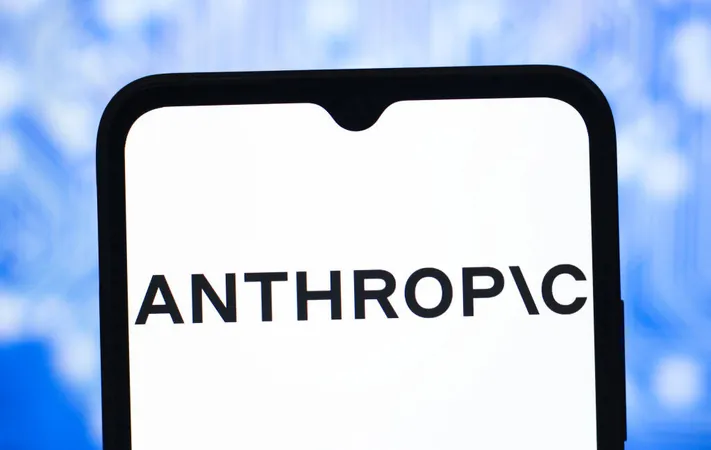
Hormone Therapy: The Hot Debate as FDA Weighs Risk Warnings
2025-09-15
Author: Wei
Hot Flashes vs. Hormone Therapy: A Dilemma for Many Women
Isabel Kallman, at 53, finds her life disrupted by relentless hot flashes and sleepless nights—a common plight during perimenopause. With hormone levels naturally dipping, Kallman's only therapy option lies in menopause hormone therapy, specifically estrogen treatments, aimed at alleviating her symptoms. Yet, she hesitates, wary of the ominous "black box" warnings about possible links to stroke, blood clots, dementia, and breast cancer.
Changing Perspectives on Hormone Therapy Risks
Despite her reluctance, the winds of change are blowing. The FDA is contemplating the removal of some warning labels attached to these treatments, which could signal a shift in how hormone therapy is perceived. Kallman currently relies on a trusty handheld fan, affectionately nicknamed "Fanny," to cope.
Flawed Research and New Insights
Dr. Mary Rosser, a female health expert and Kallman's physician, argues that outdated research from over 20 years ago skewed public understanding of hormone therapy. The 2002 Women’s Health Initiative study leaned heavily on older women who began therapy years post-menopause, leading to misconceptions about cancer risk.
Dr. Céline Gounder, a medical contributor for CBS News, supports this view, noting that advancements in research recognize the importance of factors such as age and dosage in determining the safety and effectiveness of hormone therapy. Timing is crucial—starting treatment closer to the final menstrual cycle can significantly reduce risks.
The Role of Medical Guidance in Treatment Decisions
Both doctors underscore the need for patient-doctor discussions about treatment options. Dr. Rosser advocates for initiating therapy around the patient's last menstrual period and continuing until approximately age 60, carefully evaluating individual risk factors.
Seeking Relief: Kallman's Quest for Options
Though Kallman remains cautious, she acknowledges that hormone therapy could be her best avenue for relief. She hopes for immediate solutions that can ease her symptoms. Available treatments vary from low-dose vaginal estrogen to comprehensive therapies delivered via pills, patches, sprays, gels, or vaginal rings, all designed to significantly curb hot flashes.
Experts Urge Caution Amidst FDA Review
While an FDA panel suggests benefits may outweigh the risks for some therapies, a coalition of 76 doctors and researchers has voiced concerns about potential dangers in removing warning labels too hastily. They are calling for a public advisory committee meeting before any decisions are finalized.
Dr. Rosser views this dialogue as a positive sign, emphasizing the urgent need for public health clarity on hormone therapy. As more conversations unfold, the hope is to balance patient safety with the need for effective management of menopausal symptoms.




 Brasil (PT)
Brasil (PT)
 Canada (EN)
Canada (EN)
 Chile (ES)
Chile (ES)
 Česko (CS)
Česko (CS)
 대한민국 (KO)
대한민국 (KO)
 España (ES)
España (ES)
 France (FR)
France (FR)
 Hong Kong (EN)
Hong Kong (EN)
 Italia (IT)
Italia (IT)
 日本 (JA)
日本 (JA)
 Magyarország (HU)
Magyarország (HU)
 Norge (NO)
Norge (NO)
 Polska (PL)
Polska (PL)
 Schweiz (DE)
Schweiz (DE)
 Singapore (EN)
Singapore (EN)
 Sverige (SV)
Sverige (SV)
 Suomi (FI)
Suomi (FI)
 Türkiye (TR)
Türkiye (TR)
 الإمارات العربية المتحدة (AR)
الإمارات العربية المتحدة (AR)